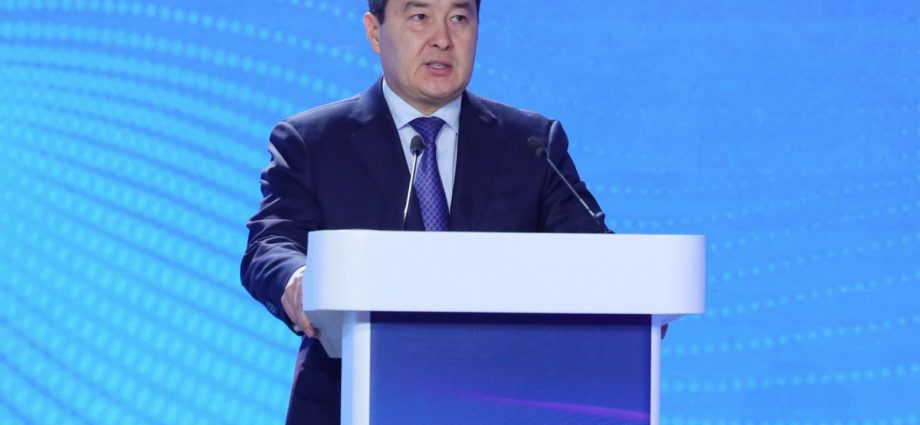Promotes vision of Central Asian hub

Astana, Kazakhstan: The Kazakh government is calling for foreign investors especially those from the Association of Southeast Asian Nations (Asean) to invest to help make Kazakhstan an investment hub in the Central Asia Region.
The Southeast Asian region could explore mutual economic development with Kazakhstan, its Deputy Minister of Foreign Affairs Roman Vassilenko told the 6th Kazakhstan Global Investment Roundtable on Friday.
Kazakhstan’s Prime Minister Alikhan Smailov visited Vietnam and Thailand recently to strengthen economic cooperation. He called for businesses to invest in Kazakhstan and invited tourists from both Asean countries to visit.
The number of Kazakh tourists visiting Thailand has risen and Thais were welcome to try the Kazakh experience, he said. “This is a positive sign for people-to-people relations that could pave the way to further economic development,” Mr Vassilenko said.
Investment hub
Mr Vassilenko said the Kazakh government is keen on promoting foreign investment to boost growth.
It wants to create a better public infrastructure system for foreign investors, especially logistics to link the country with other regions like Europe, the United States, and the Middle East.
The investment roundtable in Astana, the capital, drew 500 guests from local and international companies, authorities, and opinion leaders. It focused on investments in regional sustainable growth in key sectors such as transport, logistics, agriculture, and innovative technologies.
Prime Minister Alikhan Smailov presided over the event and delivered a keynote speech to boost investors’ confidence in the government’s efforts to ensure they can do business easily.
“All efforts will be made to achieve our target of $150 billion in foreign investment by 2029,” he said.
Over the past 10 months, GDP climbed 4.9%. Investments in fixed capital grew 12.6%, reaching 13.3 trillion Kazakhstani Tenge (US$28.8 billion).
At the regional level, 70% of foreign investment in Central Asia is concentrated in Kazakhstan. Last year, total FDI increased by 18%, reaching $28 billion. In the first half year, foreign investors sank $14 billion.
The Kazakh government, he said, would scrap unnecessary regulations for trade and investment. It has axed 11,000 such rules, and another 9,000 would go by year’s end.
The government has also offered special tax packages to investors, including a tax code to foster manufacturing industries that exempts investors from tax for the first three years, part of a programme to support SMEs enterprises.
It has also developed a tariff-for-investment exchange programme, to attract investments in complex oil and gas projects, he said.
Mr Smailov said agreements on investment promotion and mutual protection have been signed with 53 countries. More than 20 commercial agreements would be signed at the roundtable event, worth over $1.6 billion.
“The government of Kazakhstan is ready to deepen investment ties and jointly explore new markets,” he said.
Business viewpoints
Kit Matthew Simmons, a member of the board of Astana Motors in Kazakhstan, who spoke at a session on “Regional clusters as a point of attraction for investors in the regions”, praised the Kazakh government’s efforts to embrace foreign partners in business.
Business, he said, needs the government’s support, including investment in infrastructure and transboundary development.
Kazakhstan is the 6th-largest country by agricultural land area, and 80% of its land is used for agricultural production. It is rich in natural resources, including rare earth metals.

